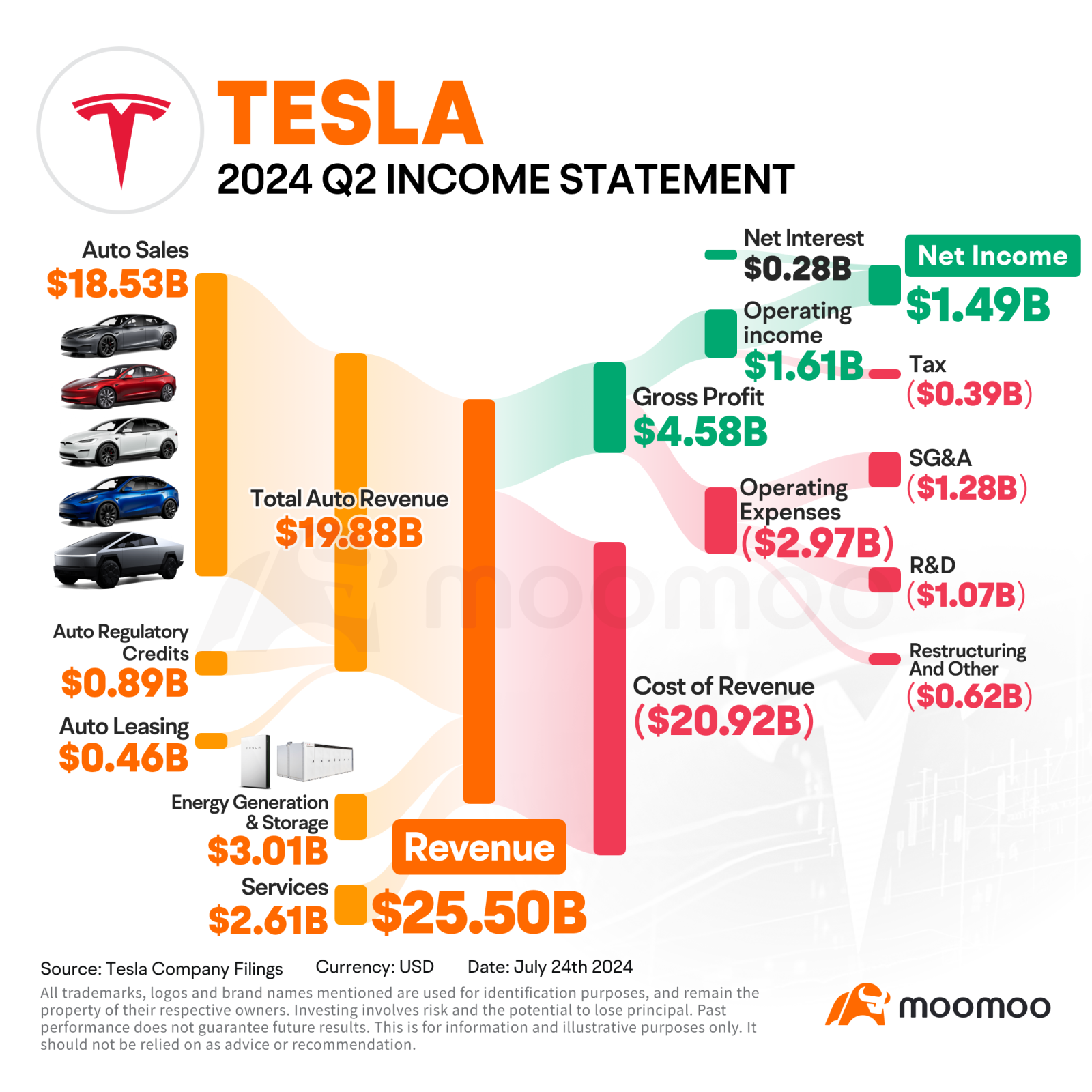Tesla Mobility is valued at $61 per share, based on discounted cash flow (DCF) projections of approximately 158,000 cars operating at $1.8 per mile by 2030. The valuation also includes $40 per share for Tesla as a third-party supplier, $50 for its energy business, $5 for insurance, and $97 for network services, which assume 15 million monthly active users generating an average revenue per user (ARPU) of $180 by 2030, discounted by 50%.




rezki_kwn2 : its going down...time to leave...
102514703 : Don't talk nonsense, it has never exceeded expectations, don't speak as if it could exceed expectations.
151369719 : EPS keep falling after so many years in production. Cars can't compete with Chinese EVs. Sales prices keep falling, thus net earnings and EPS declining. Self driving cars and robots are the same hype. Baidu had it running for 5 years and still losing money and pouring good money in the drain. Went to China to learn how to lose money? Not going to perform where the Chinese can do cheaper. Even batteries are the same. This stock will soon fall to $50 and less in a few years.
You can only give good money to them to play. Like the space ships that go up in smoke.
NSIKAN DICKSON : Join the discussion here in our new post to learn more about moomoo
steady Pom pipi : Musk should provide more details and evidence to prove the viability of robotic taxis, humanoid robots, and autonomous driving. If he did, the stock price wouldn't have plummeted like today.![undefined [undefined]](https://static.moomoo.com/nnq/emoji/static/image/default/default-black.png?imageMogr2/thumbnail/36x36)
![undefined [undefined]](https://static.moomoo.com/nnq/emoji/static/image/default/default-black.png?imageMogr2/thumbnail/36x36)
![undefined [undefined]](https://static.moomoo.com/nnq/emoji/static/image/default/default-black.png?imageMogr2/thumbnail/36x36)
SPACELIGHT rezki_kwn2 : Bye.
Laine Ford : just come on line no comment l am ready now no comment to day
Shootingstar : He is targetted like how trump was. Now is not the right time to showcase new innovations or strategies.
104247826 :![undefined [undefined]](https://static.moomoo.com/nnq/emoji/static/image/default/default-black.png?imageMogr2/thumbnail/36x36)